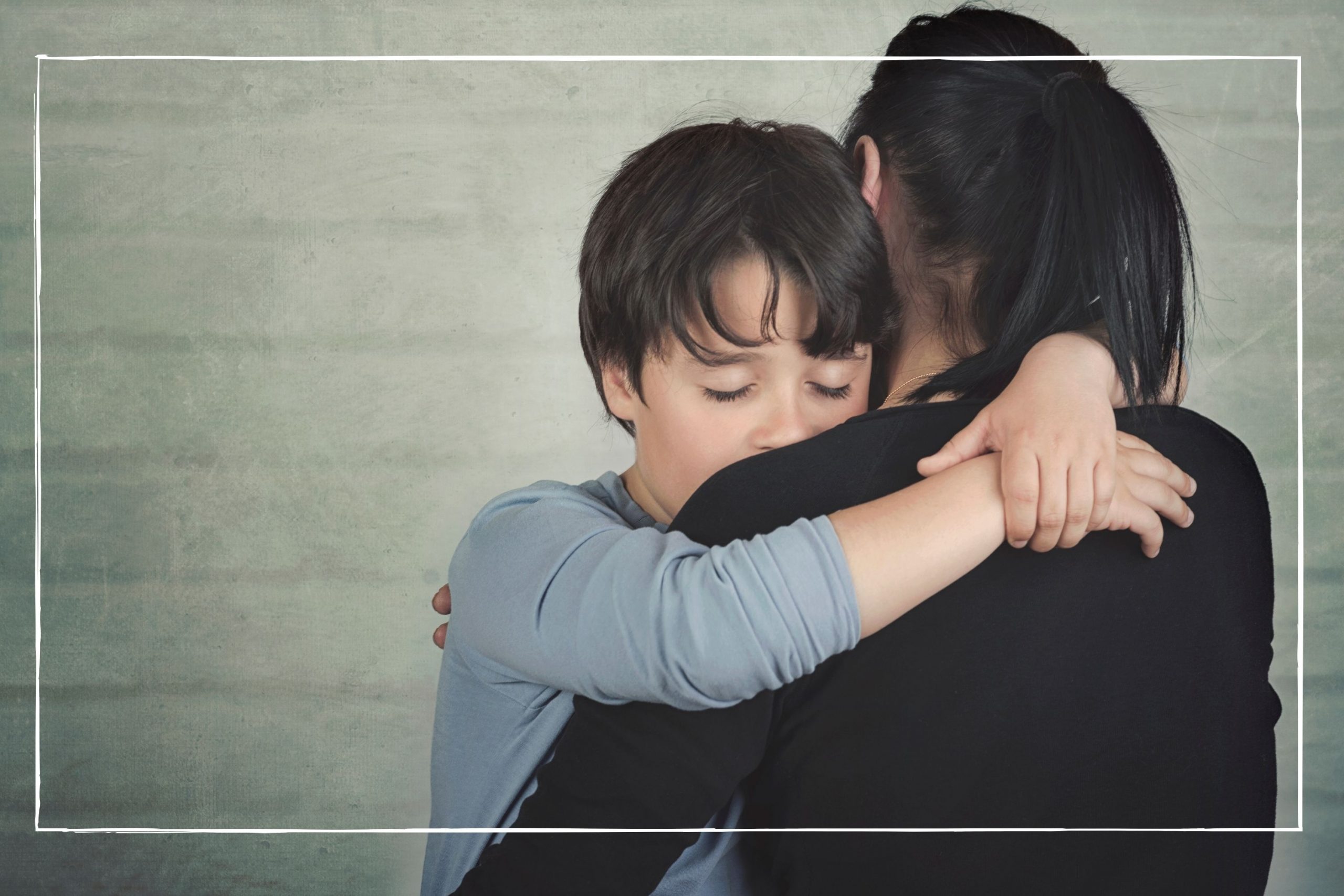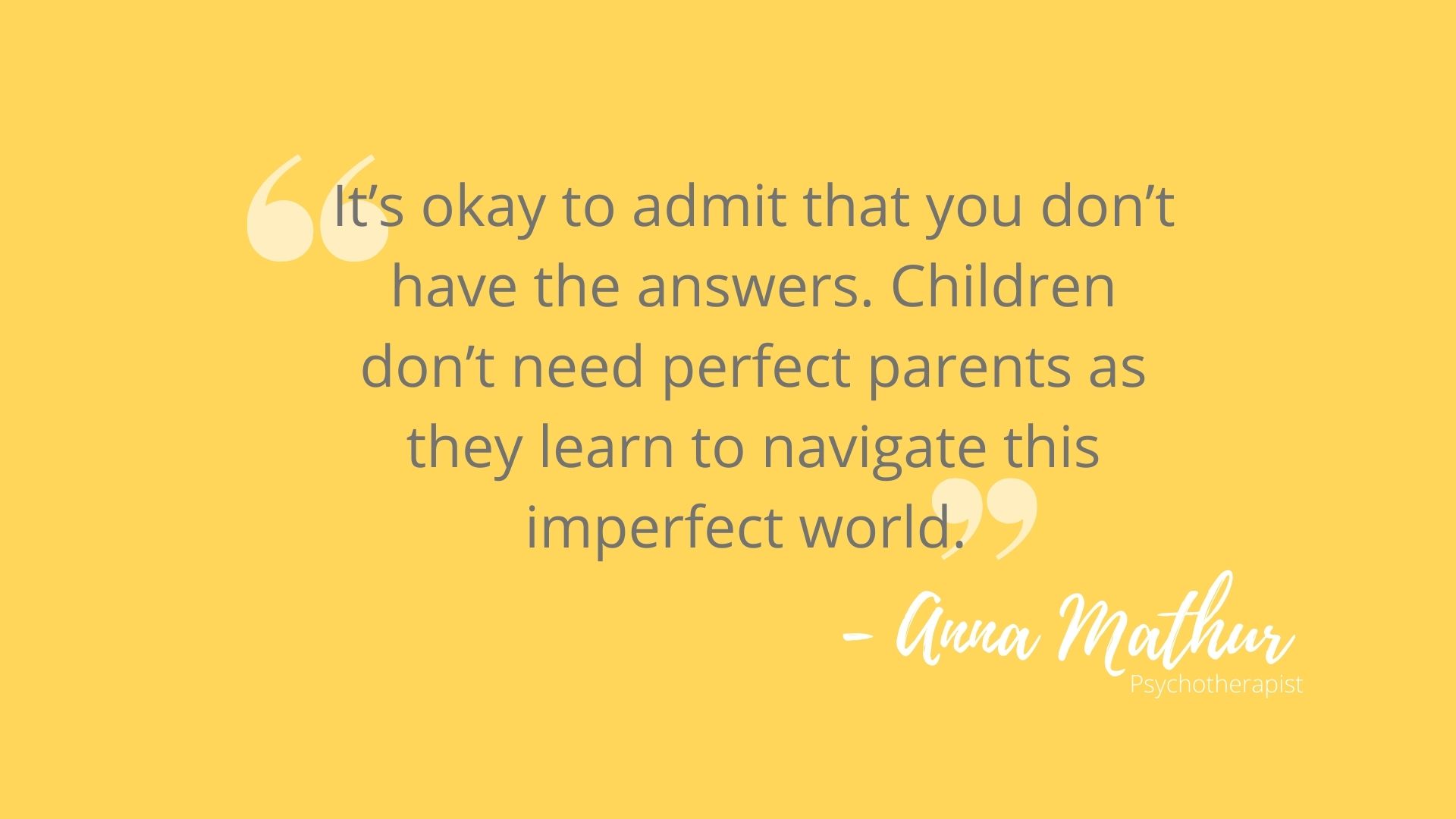Talking about school shootings with your kids - tips from the experts

Talking about school shootings with your kids isn’t something covered in first-time parenting classes.
But these days news - good and bad - travels far, wide, fast and it’s really accessible. And, following the horrific news where 18 students and two adults were killed after a mass shooting at Robb Elementary School in Uvalde Texas, you might want to know how to navigate gun violence conversations with your kids. We chat to parenting expert Kirsty Ketley and Tetyana Denford, translator, mother, and author of Motherland: War and Hope in Ukraine who tells us; "I grew up in 80s in NY, and when I was going through the American schooling system, we never had active shooter drills. We had fire drills, nothing of what's happening now, nothing of what I see my children having to face."
We know that every family is different and you know yours best, here we spoke with parenting experts, mums and psychotherapists to share the tools you may need to have a helpful and honest conversation with your child about, quite frankly, a terrifying topic.
How to talk to your kids about school shootings
Have the conversation
Parenting expert Kirsty Ketley says; "Unless it's brought up by your child, talking about school shootings isn't necessary." Though Heidi Scrimgeour, goodto.com’s consumer editor and mum-of-three disagrees, "I never used to mention bad news to my kids. I would hope that it would fly under their radar.
"My reasoning was why alert them to something awful if they might not hear about it. But more than once my kids have come home with a very particular version of a news story that is not the account I would have given them and I've had to 'undo' what another child has said.
“So now my approach is that where possible I want to be the one to break the bad news, whether it's a TV headline or something closer to home. I had to tell my very young child that his classmate had died in tragic circumstances and I broke the news of a grandparent's sudden and unexpected death to my 7yr old - these things taught me that kids can handle hearing anything if it's in the safe embrace of a loving parent or carer. And I'd always rather they got that version of events first.”
While Tetyana says; "My husband and I don't let our kids watch the news, because the news in America is quite shouty, biased and dramatic. But we talk to them about humanity, about history, about good and evil, about mental health issues, and about how the country tends to marginalise a lot of people based on race and financial status.
Parenting advice, hot topics, best buys and family finance tips delivered straight to your inbox.
"They *still* do not understand why people kill people, and why people have guns to be honest. But they do understand how to creatively barricade themselves in their school, why police presence is there, and why these things are important for the modern world. Their school keeps them safe, but unfortunately, that safety comes with specific conditioning for them to shoulder the burden of a country's ills."
Either way, whether its you or your child who kick starts the conversation, embrace it. And, it's important to validate your child's worries and not dismiss them with a well-meaning but misplaced 'you'll be fine'. Statements like this shut down the conversation and make your child feel unheard and their worries not valued.
Kirsty suggests that if your child does ask, tell them truthfully in a way that is appropriate to their age. "In this instance perhaps reinforce that guns are dangerous and highlight that here in the UK we have such strict laws that this doesn't happen. Also refer to the security measures in place at their school as an example of how the UK keep their children safe and that in the US it isn't quite the same."
"Like how to talk to children about war, or any other awful event, you only need to explain as much as your child asks."
Adapt for their age
Under 7’s - With this age group and their understanding and developmental stages - i.e. they may not understand the news their seeing is a replay - it's best to limit media exposure as much as possible. Kirsty agrees, "I think it is unlikely for this age group to properly pick up on what is going on. But, if they do overhear your conversations or see the news and ask questions, it's important to make sure they know they are safe and that what is happening is not in our country."
She suggests showing under 7's on a map or globe, so they can grasp the distance. "This will be the thing that they are most worried about. Kids of this age don’t need to be burdened with news that they are unable to understand, so if they don’t mention it, don’t bring it up. Let them be blissfully unaware."
Tweens (8-12) - Talking about school shootings with this age group is a bit trickier as they are at an impressionable age and are more aware of the world around them. If left unchecked their minds could wonder, and they could make scenarios up in their heads as to what could or could not happen, Kirsty tells us. "With this in mind it's important to reassure them that they are safe and not to overload them with information. Keep it appropriate to their level of understanding and to what they can cope with, as all children have differing thresholds."

Kirsty suggests leaning on child-friendly platforms such as Newsround. "This is a brilliant programme for children age 6-12 which explains things in an appropriate way, so if you are worried about how to go about things, watch it with your child and then have a discussion about what you have watched. - If they report on it, obviously."
Teens - Ask them what they already know and then give them reassurance if they are worried - let them know that you are there to talk through things. Kirsty says; "You can talk to Tweens and Teens about what happened in Dunblane as a point of reference, to explain why we have the laws in place here."
Above all you need your children to see and understand that you are open to having conversations about school shootings. Encourage them with lines like 'great question' and 'thanks for coming to me with this question'. Statements like this will show that you are open and ready to help them understand.
"[my children] want to be safe," Tetyana tells us. "They still trust that their school is safe. Their innocence isn't gone completely, because we want them to remember that the world is full of magic, full of hope. But the more this country doesn't create stricter gun laws, the more they erase that hope. And that is the saddest thing of all. Because children are born with so much hope, surely our job is to protect that, and to let it flourish."
Check In
Talking about school shootings is hard, so it's really important to check back in with your kids in the days following the initial conversation. To find out how their thoughts and understanding has evolved as the days have gone on. Find out what their friends are talking about in relation to this news, it will help to get an understanding of whether your kid is coping. You need more than a 'one-and-done' conversation.
If you think your child may be struggling to process this - which may look like problems with sleep, problems with attention and focus, and increased irritability, reach out for more help. Maybe speak to their school or to charities who have helplines in place.
NHS - Every Mind Matters Mind Young Minds NSPCC
Be kind to yourself
Being a parent is hard work. And, even though we don't have such easy access to guns in this country - when we see horrors like this unfolding it can really stoke our anxiety and the need to protect our children can spiral into panic mode. Anna Mathur author and psychotherapist tells us; “Introduce some self-compassion as you navigate these conversations. Traumatic events like this are a lot for children to compute, but are also a lot for adults to make sense of too. They can amplify feelings of anxiety due to the challenge of safety and increased uncertainty.
"I find it helpful to remind myself not to write myself into the stories of others, as we can find our hearts responding as if we were going through it too. A reminder to keep healthy distance if you need to, or mute the news as you process what you’ve heard, so that you don’t feel overwhelmed.
“The important thing is that you don’t pressure yourself to have the ‘perfect response’. You can equip yourself with tools and insights like the ones helpfully shared within this article, but nobody can control how a conversation will go, or be received. It’s okay to admit that you don’t have the answers. Children don’t need perfect parents as they learn to navigate this imperfect world. It can be helpful for children to see that it’s okay not to be able to make sense of everything.
“Everyone has different stories and experiences, and they inform the way we feel and navigate news events such as this. So, if you are struggling, please do seek support by talking to a friend who has historically been kind and supportive.”
Video of the Week:
Stephanie has been a journalist since 2008, she is a true dynamo in the world of women's lifestyle and family content. From child development and psychology to delicious recipes, interior inspiration, and fun-packed kids' activities, she covers it all with flair. Whether it's the emotional journey of matrescence, the mental juggling act of being the default parent, or breaking the cycle of parenting patterns, Stephanie knows it inside out backed by her studies in child psychology. Stephanie lives in Kent with her husband and son, Ted. Just keeping on top of school emails/fundraisers/non-uniform days/packed lunches is her second full-time job.